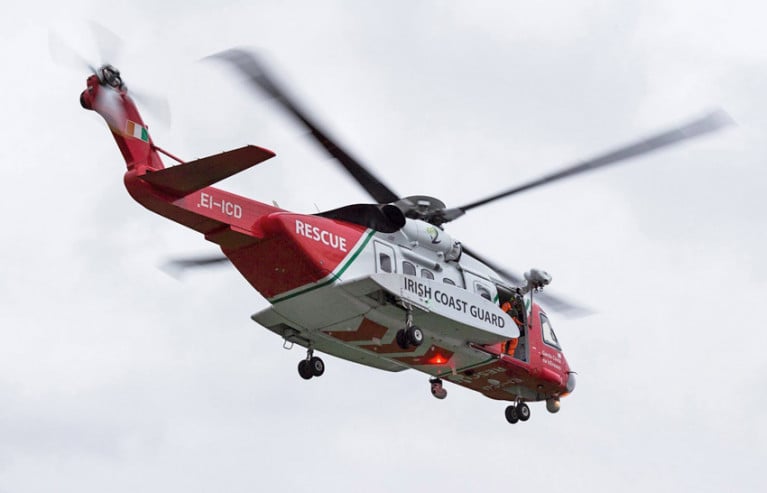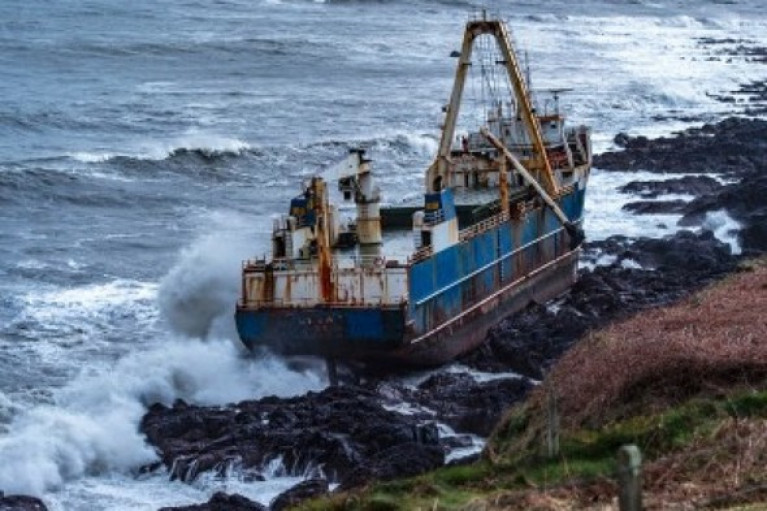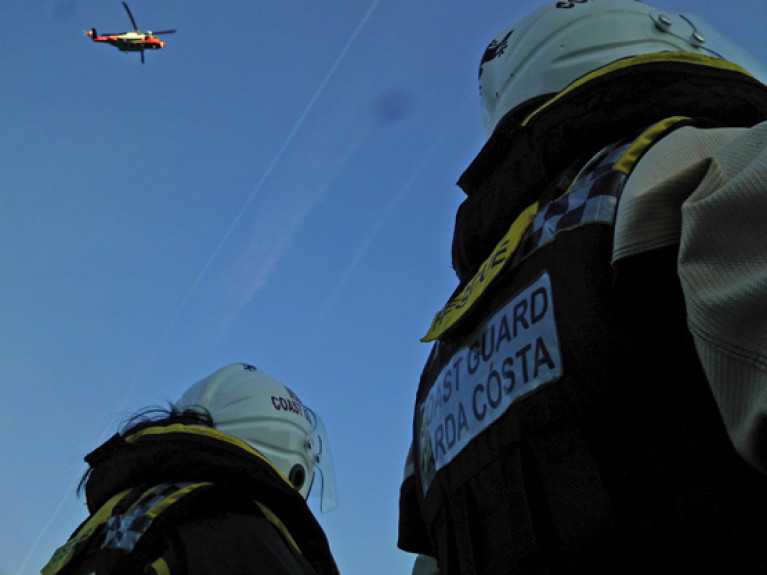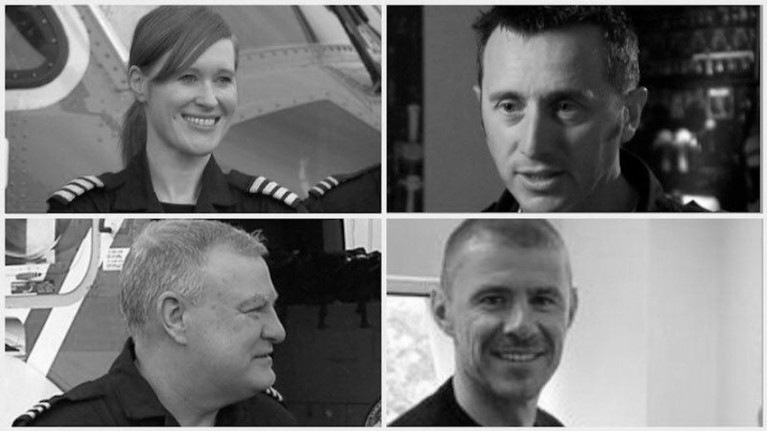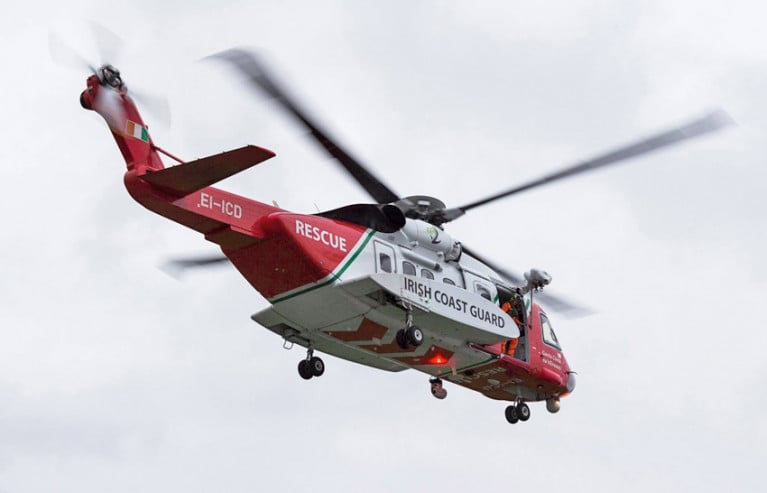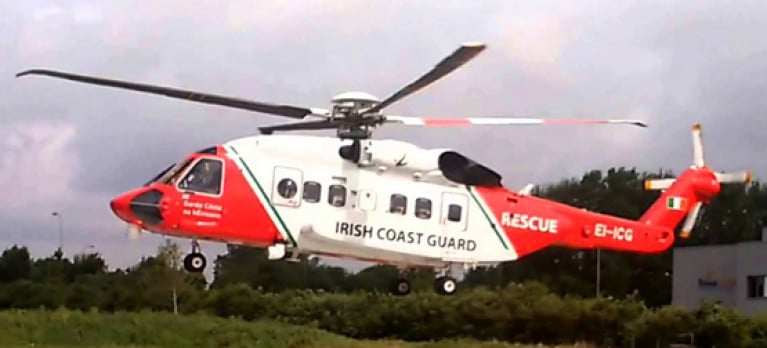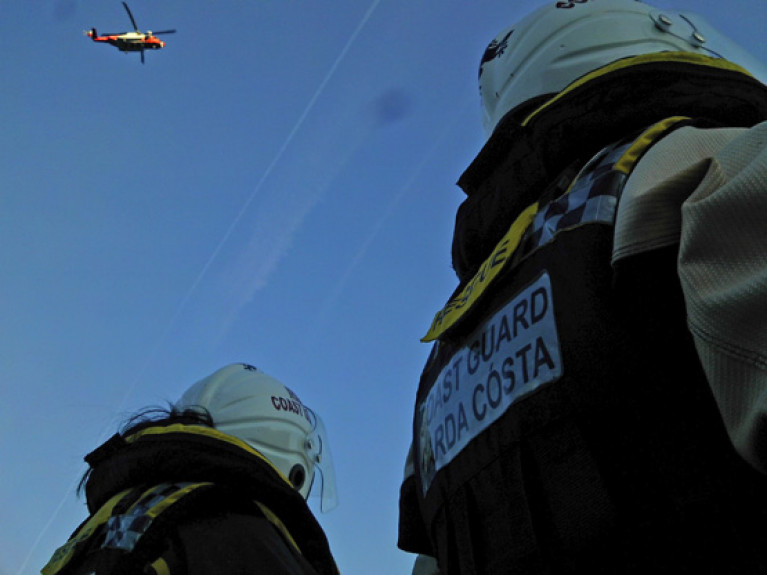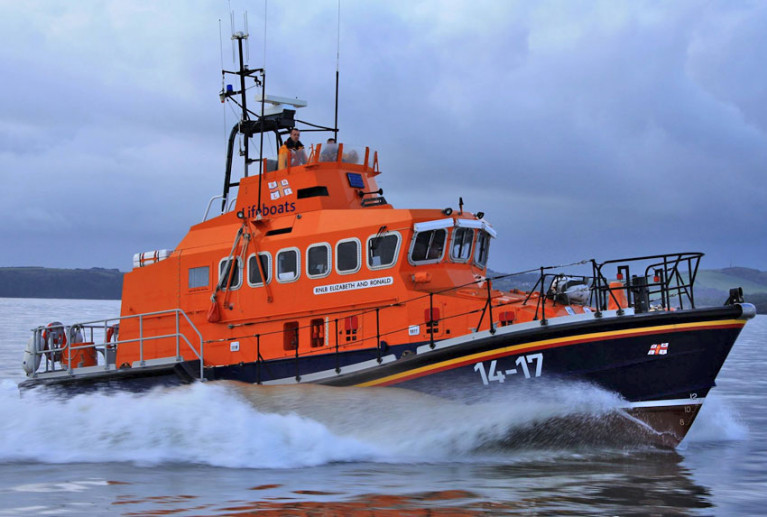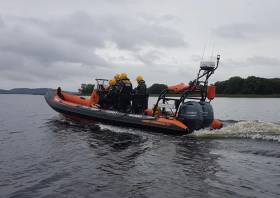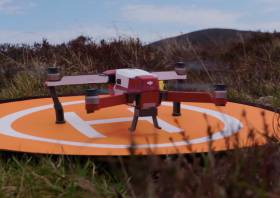Displaying items by tag: Irish Coast Guard
Coastguard In Medevac For Spanish Fisherman On Offshore Trawler
A Spanish fisherman with acute abdominal pain was airlifted from a trawler some 70 miles off Castletownbere earlier this week, as the Irish Examiner reports.
The Irish Coast Guard tasked Shannon-based helicopter Rescue 115 for the medevac on Tuesday afternoon (14 April), which was completed in just over three hours.
It’s understood the ill trawlerman was taken to Cork University Hospital for treatment.
Warning As Irish Coast Guard Say Ghost Ship Could be 'Pilfered' & Urged Council for Security
It has been urged by the Irish Coast Guard that Cork County Council and An Garda Síochána to provide security at the MV Alta shipwreck on the Cork coast last month after it was reported people tried to access the ‘ghost ship’ which drifted ashore at Ballyandreen.
As TheJournal.ie reports, MV Alta was abandoned by its crew in October 2018 after it became disabled en route from Greece to Haiti.
The 44-year-old ship drifted eastwards and was sighted by the Royal Navy in August 2019. The HMS Protector attempted to make contact with the ship but received no response. It continued to drift before landing ashore at Ballyandreen near Ballycotton on 16 February during Storm Dennis.
From the outset, Cork County Council had urged the public to stay away from the potentially dangerous wreck (which last month underwent removal of oil/diesel by the council as Afloat previously reported)
Documents released under Freedom of Information show that three days after the MV Alta ran aground at Ballyandreen, the Irish Coast Guard wrote to The Department of Transport, Tourism and Sport asking it “to impress upon Cork County Council and An Garda Síochána… that they must provide some type of security around the vessel.
More on this story here.
Irish Coast Guard Recruiting For Watch Officers
The Irish Coast Guard has vacancies for Watch Officers at its three Marine Rescue Coordination Centres in Dublin, Malin Head, Co Donegal and Valentia, Co Kerry.
The IRCG provides a nationwide maritime emergency service as well as a variety of services to shipping and other government agencies.
Watch Officers are responsible for watch-keeping on the emergency frequencies and are required to act as Marine Alert, Notification and/or Search and Rescue Mission Co-ordination Officers.
They also process marine communication traffic and respond to ship casualty, pollution incidents, vessel traffic monitoring and co-ordination of coastguard helicopter operations.
The closing date for receipt of applications is Thursday 30 April.
Full details on this role and the eligibility requirements are available on publicjobs.ie
The Irish Coast Guard has issued a statement marking three years since the loss of four crew of the helicopter Rescue 116 off Co Mayo.
Capt Dara Fitzpatrick, Capt Mark Duffy, and winch crew Paul Ormsby and Ciarán Smith died when their Sikorsky S-92 hit Blackrock island off north Mayo in the early hours of 14 March 2017. The bodies of Ormsby and Smith have not been found to date.
The coastguard said: “As our frontline and emergency service workers yet again distinguish themselves during this current crisis, we remember Dara, Mark, Paul and Ciarán who we lost three years ago today. Four of Ireland’s finest stepped out into the darkness to come to the aid of strangers.
“Two brave souls were brought home, two remain lost to the sea, but all four will be forever remembered for the sacrifice they made. Our thoughts today are with the families, friends and colleagues of Dara, Mark, Paul and Ciarán.
“Go Mairidís Beo.”
Last night, Belfast Coastguard paid respects to their colleagues in the Republic, stating: “Three years on the sense of loss and disbelief is still very much real for us all. Tonight especially, we remember the crew and their families.”
And in a touching tribute following a tidal cutoff rescue yesterday (Friday 13 March), the crew of the helicopter now using the Rescue 116 callsign left a special signature of a heart in the sky to remember those lost.
Afloat.ie reported on Thursday (12 March) that a senior counsel has been appointed to chair a review into aspects of the State investigator’s final report on the 2017 helicopter crash.
The Irish Coast Guard’s Shannon-based helicopter launched to rescue two seriously injured crew from a Dutch supertrawler on Friday morning (6 March), as the Irish Examiner reports.
Rescue 115 was dispatched yesterday to the Zeeland, a 6,000-tonne fishing factory, following the incident overnight some 170 nautical miles west of Loop Head.
With winds reaching storm Force 8 at sea, the decision was made to bring the Zeeland closer to the Shannon Estuary to allow the coastguard helicopter to approach in improved weather conditions.
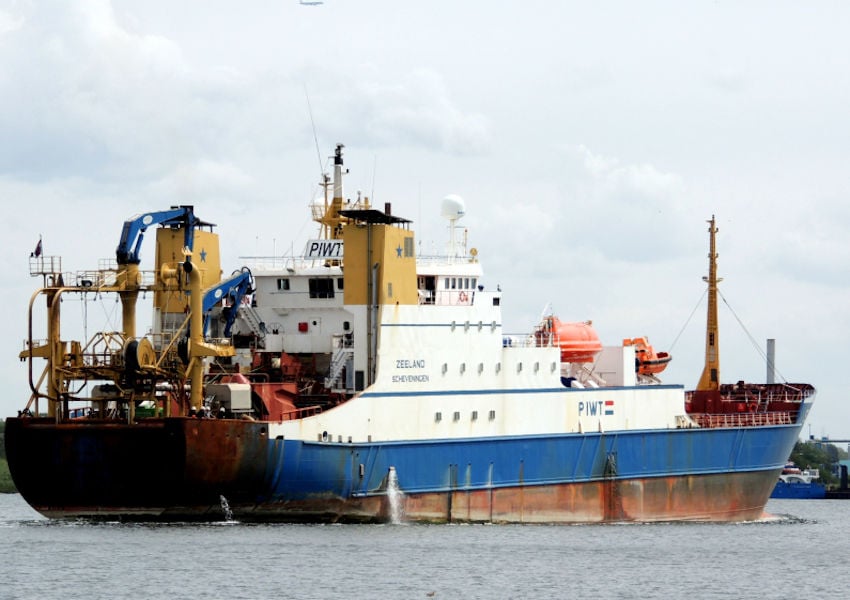 The Zeeland pictured in the Netherlands in 2015 | Photo: Moolen/Shipspotting
The Zeeland pictured in the Netherlands in 2015 | Photo: Moolen/Shipspotting
Both injured crew were assessed and treated on the vessel before being airlifted to University Hospital Limerick. Their condition is not known at this time.
The Irish Examiner has more on the story HERE.
Calls For Surfers To ‘Foot The Bill’ For Rescues During Storm Conditions After Two Taken From Water In Storm Jorge
Calls have been made for people rescued from the water while going against safety advice and weather warnings to be “handed the bill” for their rescue, after two surfers were saved off the Sligo coast during Storm Jorge at the weekend.
The Irish Times reports that the two surfers were winched aboard the Sligo-based Irish Coast Guard helicopter Rescue 118 on Saturday morning (29 February) after one had lost his surfboard and another on shore had attempted to rescue him.
Storm conditions such as those presented by Storm Jorge — which prompted a Status Red marine warning for all Irish coastal waters — create the swells sought after by the big wave surfers regularly attracted to the Sligo coast, particularly at Mullaghmore, over the winter months.
But the situation on Saturday did not sit well with members of the public commenting online, who branded the surfers’ actions as “selfish” and “nonsense” and demanded they foot “the bill” for the launch of emergency services, or even face criminal prosecution.
The Irish Times has more on the story HERE.
New TG4 Documentary Reaches Into Heart & Soul Of Irish Coast Guard
Following January’s film on Ireland’s offshore fishing industry, the latest episode of TG4 documentary series Tabú reaches into the heart and soul of the Irish Coast Guard — as told by the coastguard members in their own words.
In the aftermath of the loss of Rescue 116 and volunteer Caitríona Lucas, An Garda Cósta - Ár n-Insint Féin, which screens this coming Wednesday 4 March, explores how they continue to serve in spite of the tragedies.
Focusing on operations after the biggest tragedy that has happened to any Blue Light service in Ireland, the hour-long film reveals the anguish of the search, along with the coping mechanisms of “the coastguard family”.
And according to the producers, the documentary also reveals the dangers of the job and how they stay on the right side of risk.
Produced and directed by Darina Clancy for Midas Productions, Tabú: An Garda Cósta - Ár n-Insint Féin broadcasts Wednesday 4 March at 9.30pm on TG4.
Search For Missing Man Off Hook Head After Fisherman Dies Following Trawler Incident
RTÉ News reports that one man has died as the search continues for a second man after a fishing vessel is understood to have sunk off Hook Head last night (Saturday 4 January).
A man in his 60s was recovered in the early hours of this morning (Sunday 5 January) but died at University Hospital Waterford.
The Irish Coast Guard and RNLI lifeboat crews are involved in the search for a second individual believed to have been on the trawler south of Dunmore East.
It’s hoped that five of the 23 Irish Coast Guard units whose boats were pulled from service over lifejacket safety issues could resume operations within days, as BreakingNews.ie reports.
Last month all coastguard rescue boat operations were suspended as the IRCG launched a probe into a malfunction of its standard issue lifejackets.
Community rescue boats, RNLI lifeboats and the Naval Service were called upon to provide cover for the 23 stations around Ireland that have been affected. The suspension does not apply to the IRCG’s shoreline and cliff rescue teams.
Management has now told volunteers that a new lifejacket, the Crewsaver 380N, is being introduced on a phased basis to replace the potentially affected Rescue 400.
Subject to testing and other operational requirements, this could see rescue boats back in service at the ‘priority’ stations of Mulroy and Greencastle (Co Donegal), Drogheda and Kilkee as soon as this Thursday 5 December. BreakingNews.ie has more on the story HERE.
Dun Laoghaire Coastguard Chosen For Drone Operations On East Coast
The Irish Coast Guard’s Dun Laoghaire unit has been chosen to pilot drone operations covering the East sector.
Training is set to commence early in the new year using DroneSAR, a software platform developed by a Donegal-based team to employ commercially available drones as part of search and rescue missions.
Once this training has been completed, the coastguard crew say they will be available to assist with missing person searches.
The news comes just months after the UK’s Maritime and Coastguard Agency announced its own 12-month drone trial to support its search and rescue actions on the Essex coast.



























